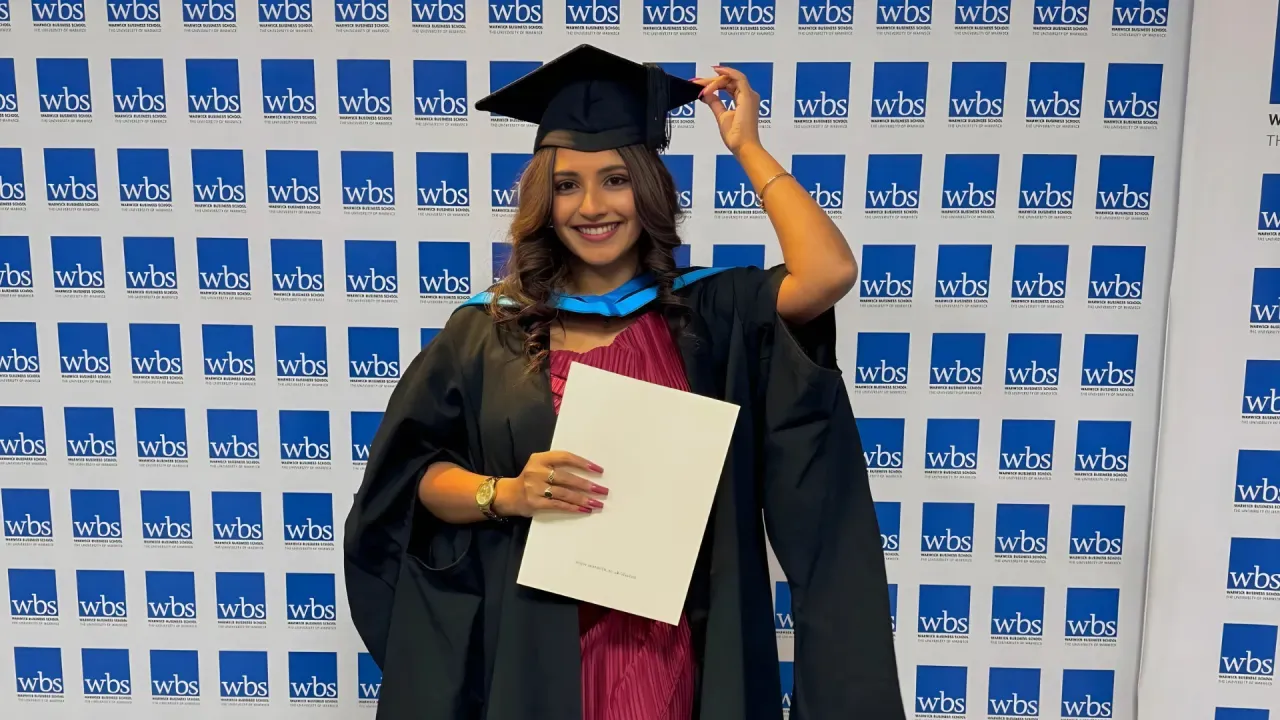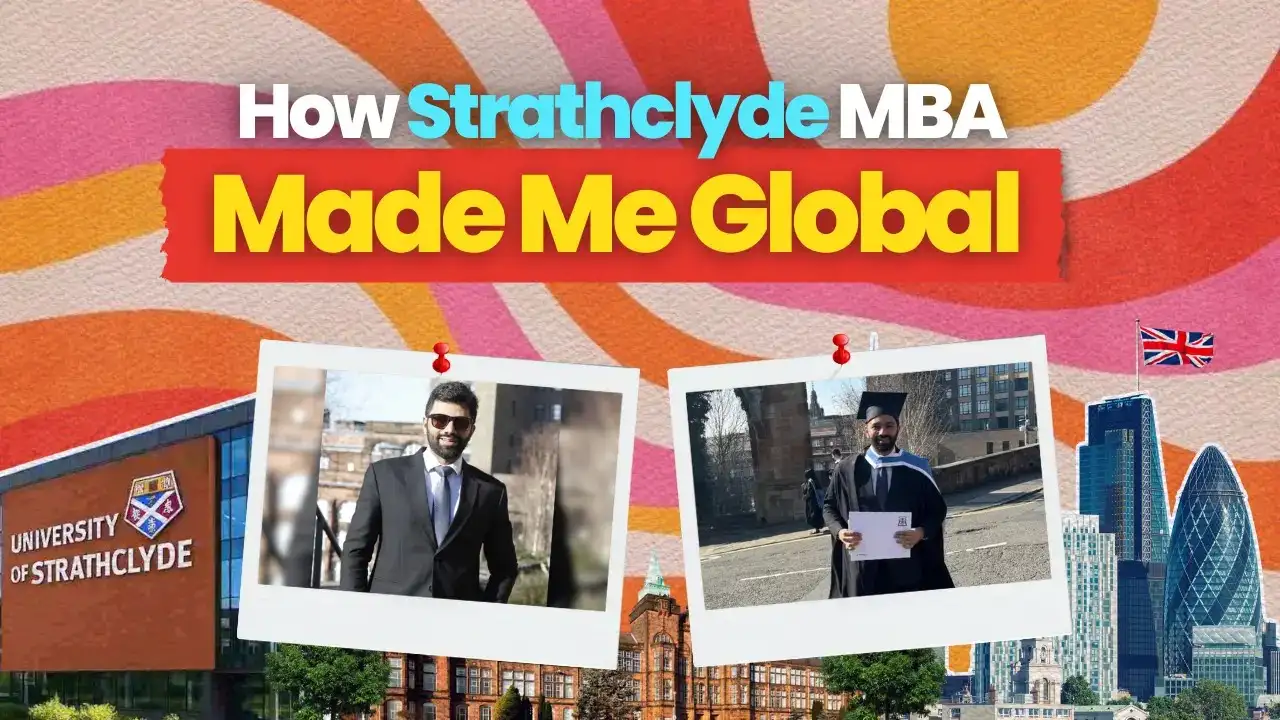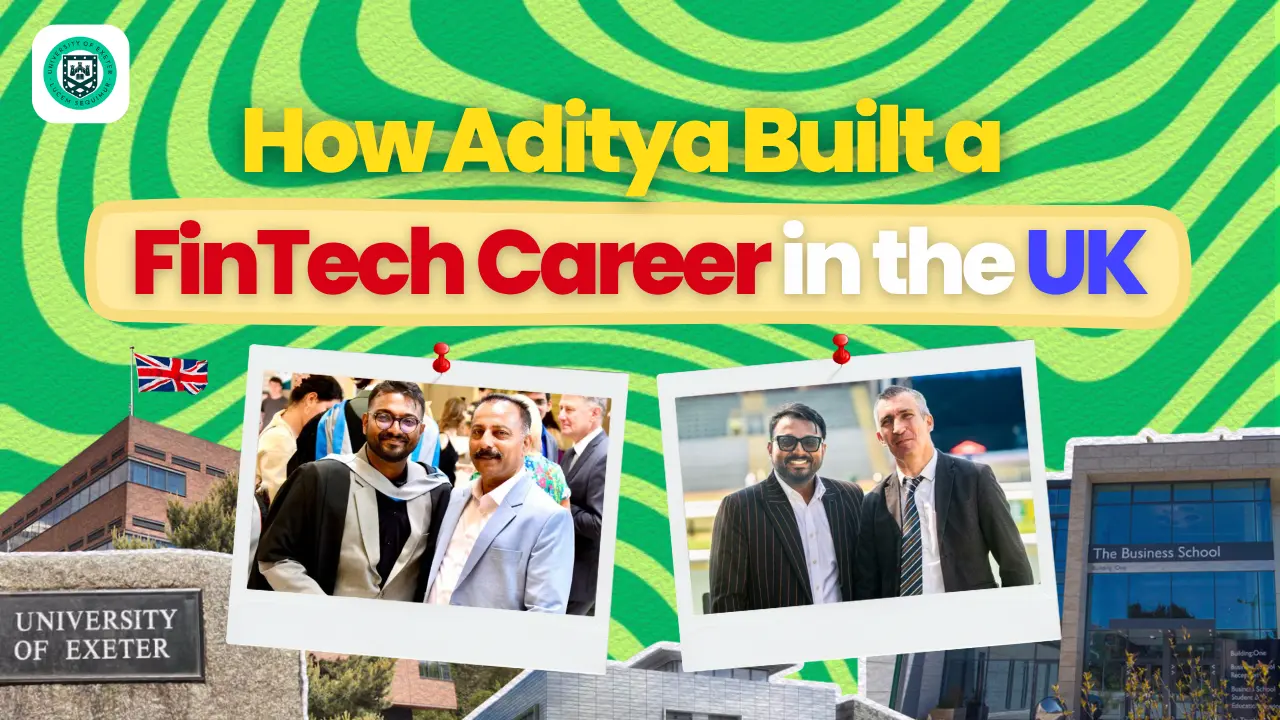Student Reviews
How Gaming Led Rajesh to Intel and How Leap Finance Helped Him Get There
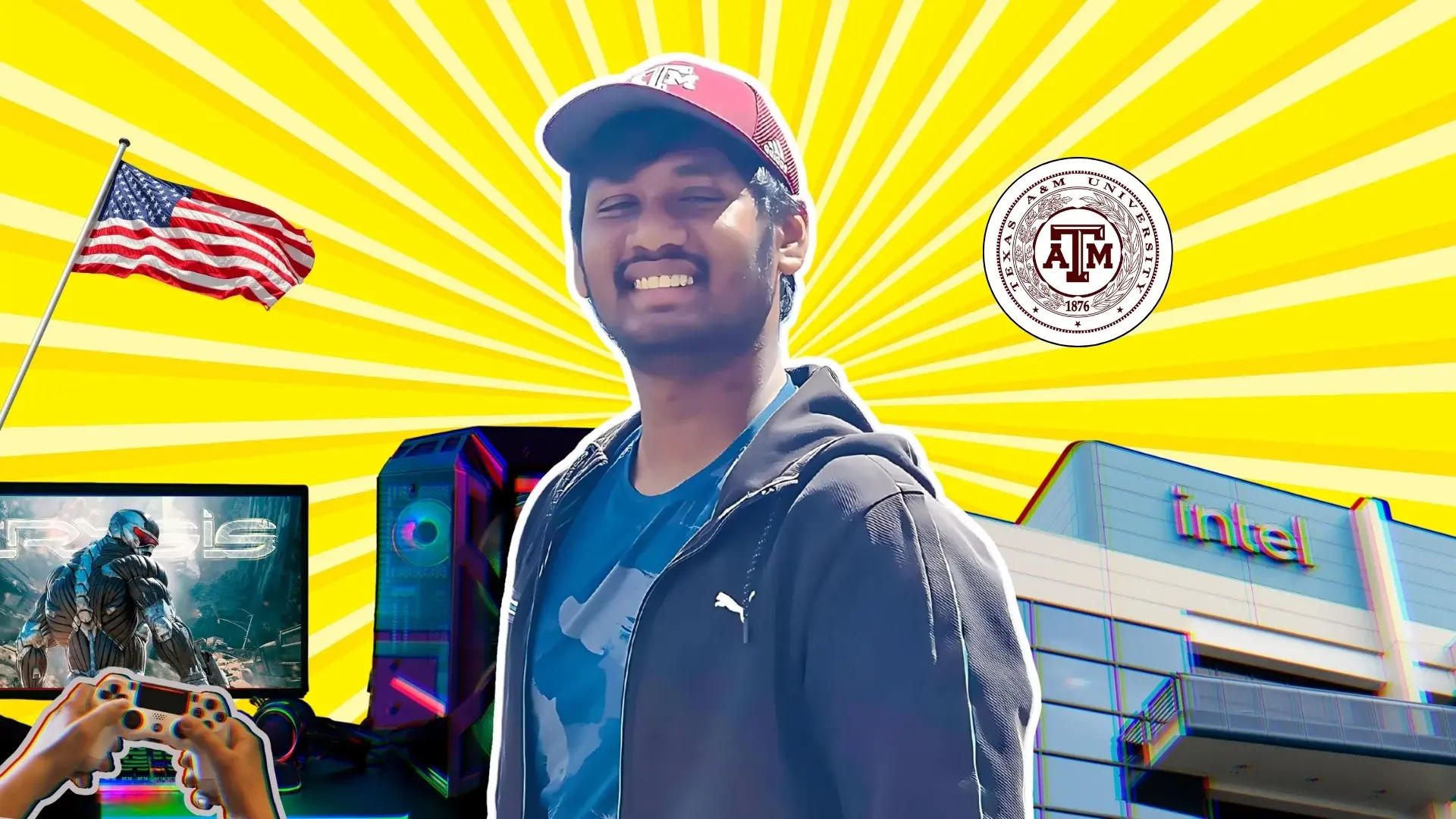
I am Rajesh Sai Kudipudi. I pursued my master’s degree in Computer Architecture from Texas A&M University. I currently work as a Design Automation Engineer at Intel Corporation. To finance my education, I took a loan. My financier was Leap, and I was glad to sit down with them and talk about my study-abroad journey.
Q. Tell us about your background
I am from Hyderabad. I pursued my undergrad from VIT—AP University. I was part of the first-ever batch that started there.
Then I got accepted at Texas A&M University and moved to the US in 2021. And eventually, that led me to take up a job here at Intel. I've been working here as a design automation engineer for the last three years.
Q. Why did you want to study abroad?
I've been gaming since 2009 or 2007. If you know a general joke in the gaming community from the time, it is that if your PC can run Crysis, it means you have the perfect gaming rig. That got me into questioning myself, and how a computer can play or run games that look so great and complicated.
I became increasingly curious as I delved deeper. My PC couldn’t run those games, and the PC that I had at work would run those games perfectly. I learned that the difference was in the computing power. And then I realized that the CPUs and the graphics cards are responsible for the gaming and all the other kinds of performance you would see on a computer.
Eventually, I figured that I wanted to get into this and design processors. With the current state of academics in India, computer Architecture is rare. It is relatively easy to enter the computer architecture field in the US.
The university I joined, Texas A&M, is among the best for computer architecture design and has produced a significant amount of research in this field. So I wanted to contribute to the advancement of computer architecture.

Q. Why did you choose Leap Finance to finance your education?
Coming to Leap was primarily due to its ease of use. I had a call with the manager, and he explained the processes involved in getting my loan approved, including documentation. It was approved within a week. Along with Leap, I spoke with other NBFCs and banking corporations, but the process took a long time. I needed the loan as early as possible.
Another attractive feature of Leap is that it offered a collateral-free loan with 100% disbursement, whereas other corporations were only willing to provide an 80-20 split.
Q. Can you tell us about your student life at the university?
When I stepped into the university, I felt like it had a soul. The university takes care of all students' needs. You are heard. You can always speak with management, a professor, or an advisor; your concerns will be addressed promptly.
The university boasts a massive 5,000-acre campus and a student population of around 80,000, making it always lively. There are tons of club activities, research opportunities, and other events that keep you engaged.
In India, discussing research or doing something unconventional often gets you labeled a nerd. But here, it’s different. If you have an idea, you're encouraged to present it. Whether you get support, feedback, or recognition, you’re always given a chance to be heard.
Socially, it’s been amazing, too. Because students come here from around the world, you get exposed to multiple cultures.
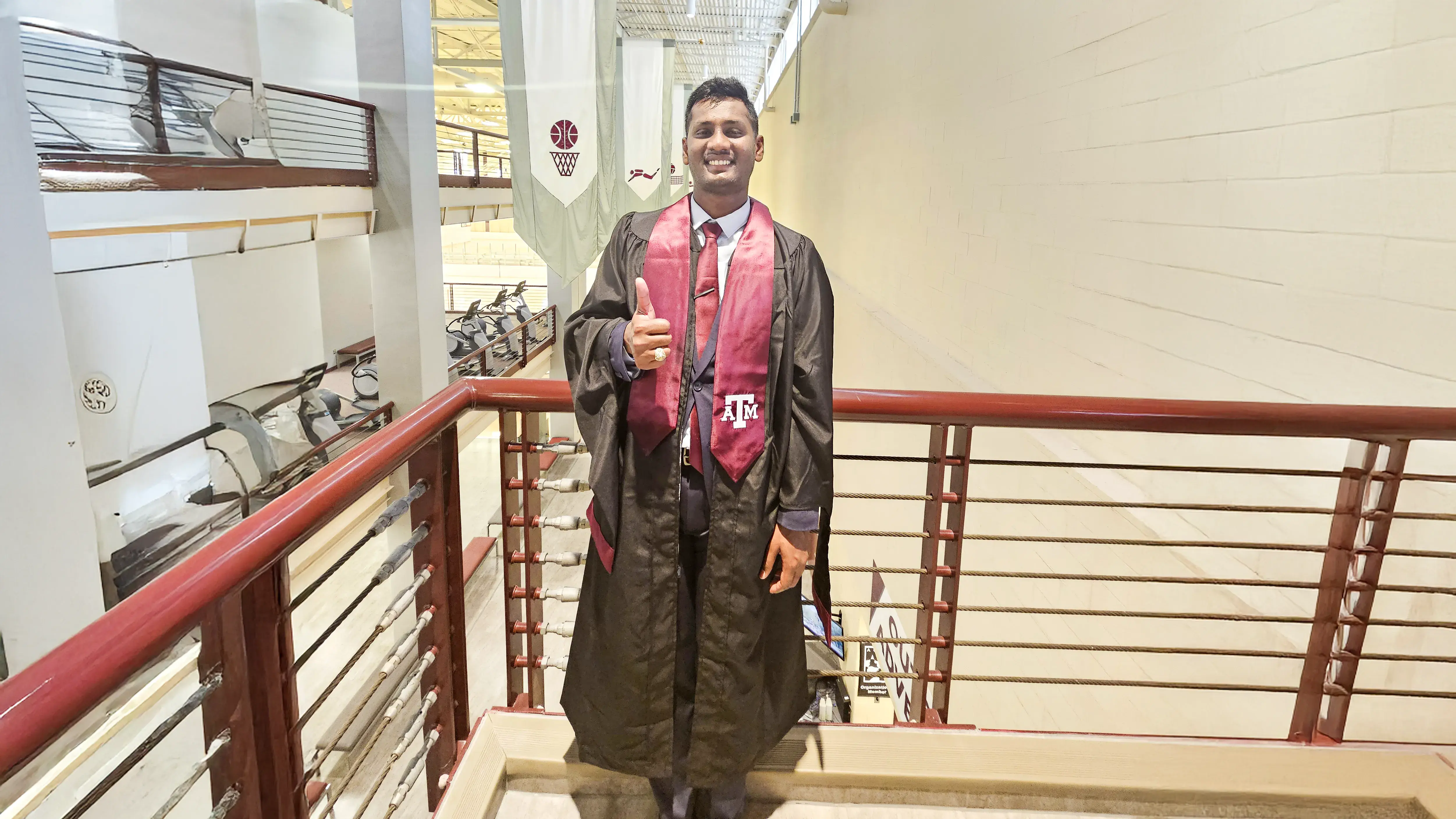
Q. How did you land your job? What was the process like?
Unlike in India, there are no placement cells here. You are on your own; you need to start applying for jobs on job portals and job listing boards, and then try to obtain as many referrals as possible.
Start engaging with people on LinkedIn and other professional social media platforms. Your approach shouldn't be like shooting in the dark. You need to know what you're aiming for. I have always aspired to work in processor design roles. I approached only a couple of companies working in processor development and reached out to managers who might have openings on their teams.
During my second semester, I actively reached out to employees at companies I was interested in, asking if they could refer me to roles for which they felt I was a good fit. This approach helped me land an internship at Intel, where I worked for about a year. After graduating, I took a short one-month break before transitioning into a full-time role at the same company.
Q. How is your life after graduation?
It's cool because you get a lot of autonomy to manage your life. And then, coming to America, it's a land of opportunities. If you wanna do skydiving every weekend, nobody's stopping you. If you're gonna go surfing every day, nobody's stopping you.
My favourite part is the work-life balance. I can manage my schedule, log in and out as needed, and handle personal tasks without issue. It all depends on the trust and understanding you build with your team and manager. As long as I deliver high-quality work on time and attend essential meetings, I can structure my day as I see fit.

Q. Would you say Leap Finance played a small part in your success?
It's because of Leap Finance that I'm here today. If I had chosen to take the 80%-20% split back in 2020, when my financial situation was challenging, I would not have had the opportunity to receive a quality education in the US. It was quite fast because I needed a loan within five days, and Leap helped me obtain it in two days. Additionally, they never required me to submit a receipt or any other type of document.
Q. Would you suggest it to your friends seeking higher education in the US?
I have actually referred 20 of my friends, and 15 of them have already been approved with Least Finance.
